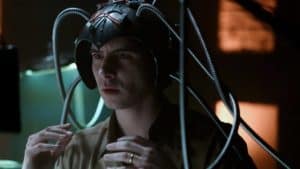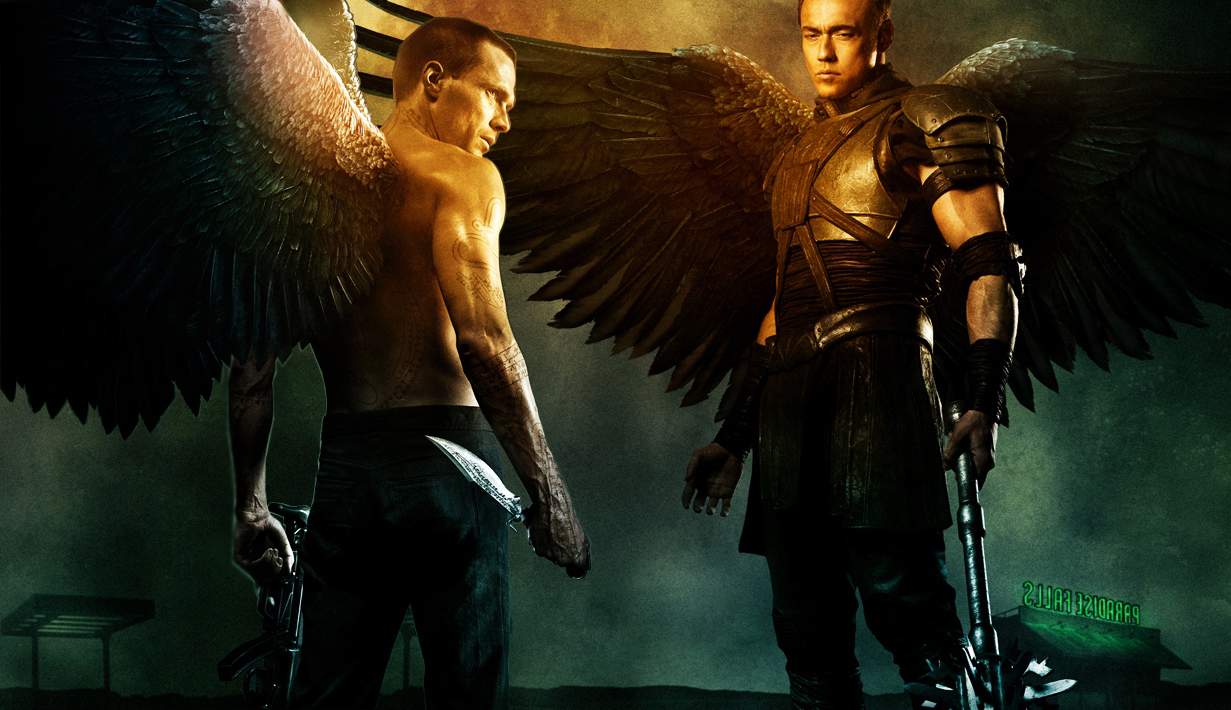If you could make everyone believe you were a good person, would you ever bother to actually be one? That’s the central question of the third season of creator Noah Hawley and FX’s “Legion,” a run-off of the “X-Men” series. What’s odd is that the question isn’t asked by the show’s protagonist, David Haller, who discovers his diagnosis around schizophrenia has more to do with his hidden psychic superpowers.
The finale of season two found god-like telepath David (Dan Stevens) on trial by his peers for, in essence, the gaslighting and sexual assault of body-swapper Syd (Rachel Keller). This season has David trying to undo what he sees is the cause of their troubles: his possession as a baby by Amahl Farouk (Navid Negahban), with the rest of the ensemble trying to prevent David from doing any more damage.
[pullquote]“If you’re going to ask your audience to accept a world with superpowers, Hawley realizes, it verges on creative irresponsibility to just stop there. Every single episode of Legion is relentlessly creative, to the point that when the credits roll it can be difficult to remember exactly what happened, as if you’ve just woken up from a dream.”[/pullquote]
Hawley isn’t interested in exploring the Nietzschean subject of whether power can make someone “above” questions of good and evil, but how someone can convince themselves that they are still good, in the face of mounting evidence against it. David wants to believe that he is good, and would rather change reality than face the possibility that maybe he isn’t. He begins with a cult, a house full of sycophants, but people now know what he’s capable of, and until he can change their minds, they are disposable.
 But David’s increasingly hollow mantra of “I’ll fix it” is beside the point, as are his increasingly frantic pleas for assurance that he is a good person, that he does deserve love. Even if he manages to undo his betrayal in the past, Syd points out, he’d still be the kind of person capable of it in the first place. The only difference is that she wouldn’t know the truth anymore. If he changes everything but himself, does that make it any less of a lie?
But David’s increasingly hollow mantra of “I’ll fix it” is beside the point, as are his increasingly frantic pleas for assurance that he is a good person, that he does deserve love. Even if he manages to undo his betrayal in the past, Syd points out, he’d still be the kind of person capable of it in the first place. The only difference is that she wouldn’t know the truth anymore. If he changes everything but himself, does that make it any less of a lie?
By questioning the might-makes-right assumptions of its title character, “Legion” asks us to do the same of the other comic book media we watch. Helmeted, armored goons vanish with a flick of David’s wrist like they always have, but now that they work for our heroes, David’s cavalier attitude toward it starts to leave a bad taste in the mouth. They have faces and voices now, but what happens to them still matters so little to David that even he doesn’t know what exactly he does to make them disappear. When you don’t have the sort of save-the-world contrivances of other Marvel stories to justify the violence, but instead a messy interpersonal conflict, one has to ask (and time-traveling newcomer Switch does) if the ends really justify the means.
It’s surprising that Legion takes such a grounded approach to its conflict (an abuser’s mental gymnastics, blown up in scale), because everything else about it is so wonderfully unmoored. If you’re going to ask your audience to accept a world with superpowers, Hawley realizes, it verges on creative irresponsibility to just stop there. Every single episode of Legion is relentlessly creative, to the point that when the credits roll it can be difficult to remember exactly what happened, as if you’ve just woken up from a dream. When someone can control anything they see with their mind, is anyone really going to bat an eyelash at mustachioed androids, psychic dance-battles, or time-eating cat-things? As it stands, the show is a screaming rebuke to the timidity of so many comic book adaptations that came before it — “Legion” finds its characters interesting, and trusts that you will too, and so doesn’t need to get bogged down in explaining away all the magic.
All this said, “Legion” could still go absolutely off the rails in the final episodes of this season. There are only so many ways to tell a time-travel story, and most of them have been done before and by other Marvel properties, too. Adding a time traveler could completely destroy the unplaceable surreality that makes the world of “Legion” world so fascinating, it could make the journeys the characters have gone on over the past two years totally pointless, it could railroad the show into a deeply uninteresting and obvious religious metaphor. But even if everything goes wrong, I’ll still be grateful that it exists at all, because “Legion” is the only thing out there that genuinely captures the weirdness that made me start reading comics in the first place.









